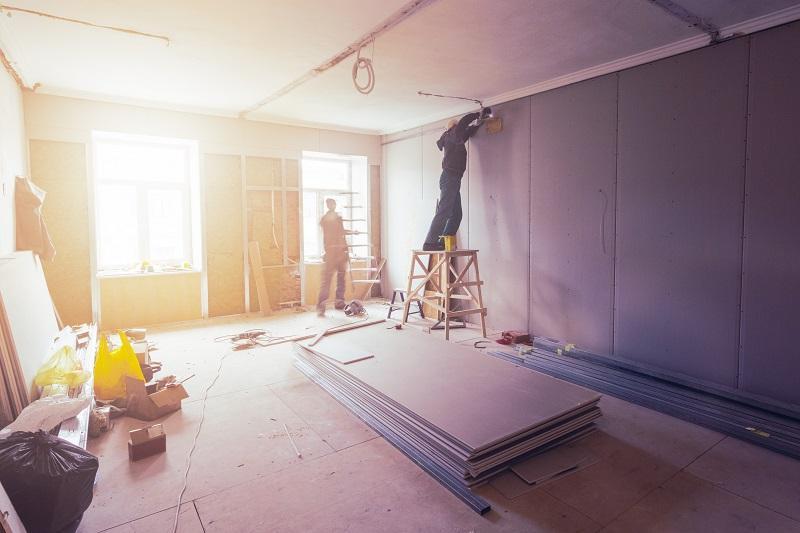By Joshua Burd
The state Assembly has passed a bill that would revamp how New Jersey calculates each town’s affordable housing obligations, seeking to streamline a process that had languished in recent decades before being taken over by the state judiciary.
The measure, A4, was one of six that moved through the chamber as part of a party-line 51-28 vote on Monday. Assembly Democrats who support the bill noted that it would abolish the defunct Council on Affordable Housing, the agency once charged with determining each municipality’s obligations, and provide a new framework that would give local governments greater flexibility and input.
Among other changes, the bill requires the state Department of Community Affairs to complete those calculations under a newly established statutory formula and publish them by Dec. 1, 2024. It also allows a municipality to diverge from DCA’s findings as long as it adheres to the methodology established by the bill, while requiring that a town adopts its obligation by a binding resolution on or before Jan. 31, 2025, in order to shield itself from so-called builder’s remedy lawsuits that developers have long used to secure approvals for projects that included affordable housing.
Interested parties may challenge a municipality’s calculations and subsequent plans for meeting its obligations, according to the measure, giving way to a new dispute resolution program that is managed by the state judiciary but does not constitute litigation.
“We have a moral obligation to make sure everyone can find affordable housing in our state,” Assembly Speaker Craig Coughlin said. “This bill, which addresses one of the biggest affordability problems in our state, will help our residents stay in the Garden State.”
The proposal comes nearly 50 years after the state Supreme Court’s landmark Mount Laurel decision, which has guided affordable housing policy in New Jersey in recent decades and led lawmakers to create COAH. But the complex and often controversial efforts to create low- and moderate-income housing had stalled by 2015, when the Supreme Court shut down the council and handed the task to judges across the state.
Those judges went on to broker settlements between advocates and local governments, leading to a wave of approved multifamily and mixed-use projects that observers say has provided housing to more than 50,000 people over the last eight years.
“By streamlining the process for developing affordable housing, this legislation would avoid prolonged legal battles and reduce municipal spending,” said Adam Gordon, executive director of the Fair Share Housing Center, testifying last month in support of the bill. “Housing shortages hurt everyone in our state — shrinking our labor supply and handicapping our economic growth. Since 2015, New Jersey has taken bigger steps than ever before to create affordable homes — but there’s still much more work to do.”
A4 calls for the Administrative Director of the Courts to appoint a panel of retired and on recall judges, or other qualified experts, to help mediate disputes over municipal obligations. Municipalities could still lose their immunity to builder’s remedy lawsuits if they don’t meet certain deadlines for codifying their affordable housing plans.
Along with Coughlin, the bill’s sponsors include Assemblywoman Yvonne Lopez, Assemblywoman Verlina Reynolds-Jackson and Assemblyman Benjie E. Wimberly. Senate Democrats have voiced support for a similar bill as Republicans have balked at the concept, while Gov. Phil Murphy’s exact position on the legislation was unclear on Monday.
“We want people to stay and thrive in New Jersey and having access to affordable housing is key to that goal,” said Lopez, a Middlesex County Democrat. “A4 offers a pathway for our municipal partners to deliver on their constitutional obligations with a consistent and uniform process that empowers them to build the housing required of them in a manner they see fit.”
Wimberly, who represents parts of Bergen and Passaic counties, added: “New Jersey residents are counting on us, so casting a YES vote, for this bill was important not just for my district, but the whole state. This bill will address the housing needs of so many New Jerseyans — from the youngest of children to the oldest of seniors. Young families should be able to access affordable, safe housing as they establish their roots and raise their children, and seniors should be able to retire in the community they’ve always known.”
The other affordable housing bills approved Monday include:
- A1495, which exempts receipts from sales of materials, supplies and services for certain affordable housing projects from sales and use tax.
- A2296, which permits a municipality to authorize its municipal clerk to submit certain written statements concerning affordable housing.
- A2390, which requires municipalities in compliance with affordable housing obligations to be provided priority consideration for certain state grants and assistance.
- A3128, which authorizes the New Jersey Housing and Mortgage Finance Agency to issue tax credits for certain purposes.
- A3337, which allows projects supported by state or municipal affordable housing trust fund to be exempt from property tax and to instead contribute to municipal services by making payments in lieu of taxation.
“We know children raised in stable environments are more likely to succeed in school and in their future endeavors,” Reynolds-Jackson said. “It is our responsibility to ensure that they, along with their families, have the chance to flourish within their community without the constant fear of losing their home.”










